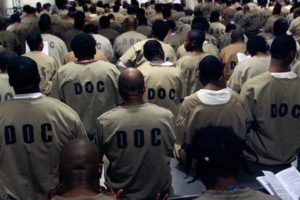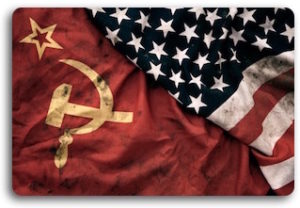White Privilege
November 17, 2017BuzzFeed: ‘One-third of black men will go to prison at least once in their lifetime.
The Invisible Character of White Privilege
11.17.17
by Richard Rohr
Because we have never been on the other side, we largely do not recognize the structural access we enjoy, the trust we think we deserve, the assumption that we always belong and do not have to earn our belonging. All this we take for granted as normal. Only the outsider can spot these attitudes in us.
Of course, we all belong. There is no issue of more or less in the eyes of an Infinite God. Yet the ego believes the lie that there isn’t enough to go around and that for me to succeed or win, someone else must lose. And so we’ve greedily supported systems and governments that work to our own advantage at the expense of others, most often people of color or any highly visible difference. The white man’s easy advancement was too often at the cost of others not advancing at all. A minor history course should make that rather clear.
I would have never seen my own white privilege if I had not been forced outside of my dominant white culture by travel, by working in the jail, by hearing stories from counselees, and frankly, by making a complete fool of myself in so many social settings—most of which I had the freedom to avoid! Recognition was slow in coming. I am not only white, but I am male, overeducated, clergy (from cleros, “the separated ones”), a Catholic celibate, mostly healthy, and part of the American empire.
Power never surrenders without a fight. If your entire life has been to live unquestioned in your position of power—a power that was culturally given to you, but you think you earned—there is almost no way you will give it up without major failure, suffering, humiliation, or defeat. As long as we really want to be on top and would take advantage of any privilege or short cut to get us there (what exactly is it that is up there?), we will never experience true “liberty, equality, fraternity” (revolutionary ideals that endure as mottos for France and Haiti).
To repeat, if God operates as me, God operates as thee too, and the playing field is utterly leveled forever. Like Jesus, Francis, Clare, and many other humble mystics, we then rush down instead of up. In the act of letting go and choosing to become servants, community can at last be possible. The illusory state of privilege just gets in the way of neighboring and basic human friendship.
Richard Rohr, an American Franciscan friar ordained to the priesthood in 1970. He is a known inspirational speaker and a author.
The Center for Action and Contemplation began as a dream of Fr. Richard Rohr’s in 1986 during his first year in Albuquerque. By October of 1987, the first edition of Radical Grace was published. The name was chosen because it expressed the paradoxical nature of the Center’s purpose: standing in a middle place, at the center of the cross, where opposites are held together. [wikipedia]
Civic engagement.
Science’s Next Frontier? It’s Civic Engagement
by Louise Lief
11.13.17
‘…scientists’ problems run deeper. According to a number of recent surveys, there has been a rapid decline in knowledge about and sympathy for scientists and the institutions where many of them work, particularly among Republican and Republican-leaning voters. Politicians from the same party who now govern in over 32 states, the White House, and Congress are aware of these sentiments.
These developments point to an urgent need for the scientific community to rethink the enterprise and reintroduce science to the public as a trusted, non-partisan civic actor, a collaborator that can help communities address their problems, and partners in a dialogue where each party brings its unique lived experiences to the table. Scientists need to create more portals to the public, and the citizen science community may be best situated to lead this transformation.
There is evidence that the public is hungry for such exchanges. When Research!America asked the public in 2016 how important is it for scientists to inform elected officials and the public about their research and its impact on society, 84 percent said it was very or somewhat important — a number that ironically mirrors the percentage of Americans who cannot name a scientist.
Recently, I have focused on civic engagement, studying how communities try to identify and address collective problems and apply collaborative problem solving. There is a central role for scientists in this effort.
To better introduce themselves to the public, it makes sense for scientists to work with civic institutions the public already trusts. Arizona State University’s efforts to partner with local public libraries is one such step that helps root citizen science programs in communities, creating a natural alliance of knowledge seekers, science, and public engagement, and establishing community feedback loops. (Full disclosure, Cavalier is the PI of this initiative, supported by the Institute for Museum and Library Services.)
Scientists need to be present at these tables, and practice those deep listening skills. At a minimum you will meet new people and gain new insights. But you may also make valuable new connections, find new collaborators, and most important of all, forge stronger bonds with your community. Don’t underestimate the power of the data you collect and create to impact community decision making.
[full article: http://blogs.discovermagazine.com/citizen-science-salon/2017/11/13/sciences-next-frontier-its-civic-engagement/#.Wg9Buq2ZP1J]
______
ESALEN
News note: During the height of the Cold War, Esalen launched the Soviet-American Exchange Program, and a series of Soviet-American citizen diplomacy gatherings, organized by Michael and Dulce Murphy and others. At these meetings held at Esalen, Joseph Montville coined the phrase “track-two diplomacy”, which is now a well-recognized diplomatic method. This work led to the first spacebridges which enabled Soviet and American citizens to speak directly with one another via satellite communication, along with multiple other projects. The following article was written by Joseph Montville for Stratfor Enterprises, LLC and republished with their permission.
Former Soviet leader Mikhail Gorbachev recently wrote an op-ed that, amid the many conflicts brewing around the globe today, recalls an era of diplomacy worth revisiting. In the Oct. 11 column, he expressed fear that the Intermediate-Range Nuclear Forces (INF) Treaty he signed with former U.S. President Ronald Reagan in December 1987 is at risk of collapse. Though 80 percent of the nuclear weapons that the United States and the Soviet Union accumulated during the Cold War have been decommissioned and destroyed, and both sides have complied with the deal’s strategic weapons clauses, the INF faces stiff opposition in each country today.
[…]
“Track two diplomacy is a process designed to assist official leaders to resolve or, in the first instance, to manage conflicts by exploring solutions out of public view and without requirements to formally negotiate or bargain for advantage. Track two diplomacy seeks political formulas or scenarios which might satisfy the basic security and esteem needs of the parties to a particular dispute. On its more general level, it seeks to promote an environment in a political community, through the education of public opinion, that would make it safer for political leaders to take risks for peace.”
Treading Where Diplomats Cannot
As today’s headlines make clear, the American public is becoming increasingly concerned that Trump’s policies on North Korea could precipitate a disastrous conventional war capable of destroying Seoul and its millions of citizens, along with tens of thousands of Americans living in South Korea. Many worry that Japan, too, may become a target of Pyongyang’s short-range nuclear missiles.
In an Oct. 22 interview, Carter showed some sympathy for Trump while reiterating his recent offer to meet with North Korean leader Kim Jong Un. The former president has a history of intervening in tense conflicts. He went to North Korea in 1994 to head off a potential war, reportedly annoying then-President Bill Clinton. Later that year, he persuaded Haiti’s leaders (this time with Clinton’s approval) to peacefully leave the country in order to fend off a U.S. invasion. Of course, Carter has never felt bound by strict instructions from the White House if he believes they reduce the chances of a peaceful resolution to conflict. His chief focus is eliminating violence; that’s the way he is.
North Korea has already been the subject of many Track Two initiatives, even if the North Korean participants in those talks could never be considered unofficial. According to journalist M.J. Zuckerman’s major cover story “Track II Diplomacy: Averting Disaster,” published in 2005, the Carnegie Corporation of New York supported several “Track 1.5″ meetings that eventually yielded a deal to resume formal negotiations among the six-party nuclear group made up of North Korea, South Korea, China, Japan, Russia and the United States.
[…]
I now realize that properly done Track Two does not seek to ‘get in the way’ of Track One diplomacy, as those in office sometimes fear, but rather to complement it, often by going to places where Track One is unable to tread and by tackling subjects it cannot approach.”


